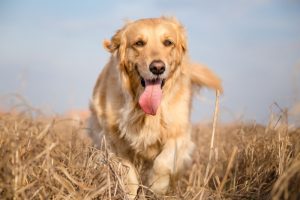 It appears like Spring may be here to stay in Northern Colorado, and many people are turning their thoughts to planting and landscaping. If you are a pet parent, your landscaping choices should be about more than simple aesthetics. It needs to provide a safe and healthy environment for your furry friends. Here are some do’s and don’ts when you are designing your home’s outside appeal, while keeping in mind your pet’s safety and health needs.
It appears like Spring may be here to stay in Northern Colorado, and many people are turning their thoughts to planting and landscaping. If you are a pet parent, your landscaping choices should be about more than simple aesthetics. It needs to provide a safe and healthy environment for your furry friends. Here are some do’s and don’ts when you are designing your home’s outside appeal, while keeping in mind your pet’s safety and health needs.
Poisonous Plants
Although flowers of all types add beauty and fragrance to your yard, some types can be your pet’s worst enemy. Here are some common plants and flowers to keep out of your yard or at least prevent access to:
- Amaryllis: Can cause vomiting, diarrhea, and tremors when its leaves are ingested.
- Azaleas: Can cause nausea, lack of coordination, paralysis and blindness.
- Castor bean: Has seeds that can cause death and leaves that can burn your pup’s mouth.
- Daffodil: This early spring flower can cause vomiting and over time, kidney failure, if ingested.
- Foxglove: Has chemicals that can cause vomiting, dizziness, seizures, abnormal heart rate, and death.
- Lily-of-the Valley: These perennials are toxic and can cause lethargy, vomiting, and possibly kidney failure.
- Oleander: This evergreen shrub can cause abdominal pain, vomiting, diarrhea, lethargy, irregular heartbeat, paralysis, coma, and in large doses, death.
Those are just a few of the plants that can harm your pet. For a more complete list, see ASPCA’s complete list of toxic plants.
Dangerous Mulch
Toxic flowers and shrubs are not the only potential dangers in your yard. Did you know certain mulches could also be hazardous? Cocoa mulches contain the same ingredients– theobromine and caffeine—that make chocolate harmful for your dog. Ingesting cocoa mulch can cause vomiting, diarrhea, rapid heart rate, tremors and seizures. Before you put mulch around your trees, bushes and flower beds, make sure you know what type you’re spreading.
Water Hazards
Many people love water pools and fountains, complete with lily pads and koi fish. However, standing water is a breeding ground for bacteria, parasites and mosquitos. A sip from this stagnant water could cause stomach upset, diarrhea and general malaise. And don’t forget, mosquitos are a vector for heartworms. If you choose to incorporate a pool into your landscaping, make sure you empty it every other day and make sure your pup is up-to-date on heartworm prevention.
Lush Lawn
Every backyard gardener hopes for a luxuriant green lawn, but it takes more than hope to get it. Not only does a great-looking lawn take lots of blood, sweat and tears, it usually requires a lot of fertilizer and pesticides. These lawn chemicals can be toxic to pets. Make sure to read the directions and safety tips and take the necessary precautions to prevent harmful exposure to your furry friends.
A little forethought and planning will result in a beautiful AND pet-safe yard for you and your pets to enjoy. If you have questions or need to renew your pup’s heartworm medications, give Powell Veterinary Service a call at 970-352-9164.



WORKING HOURS:
Monday-Friday 8:00am - 5:00pm
Saturday 8:00am - 12:00 noon